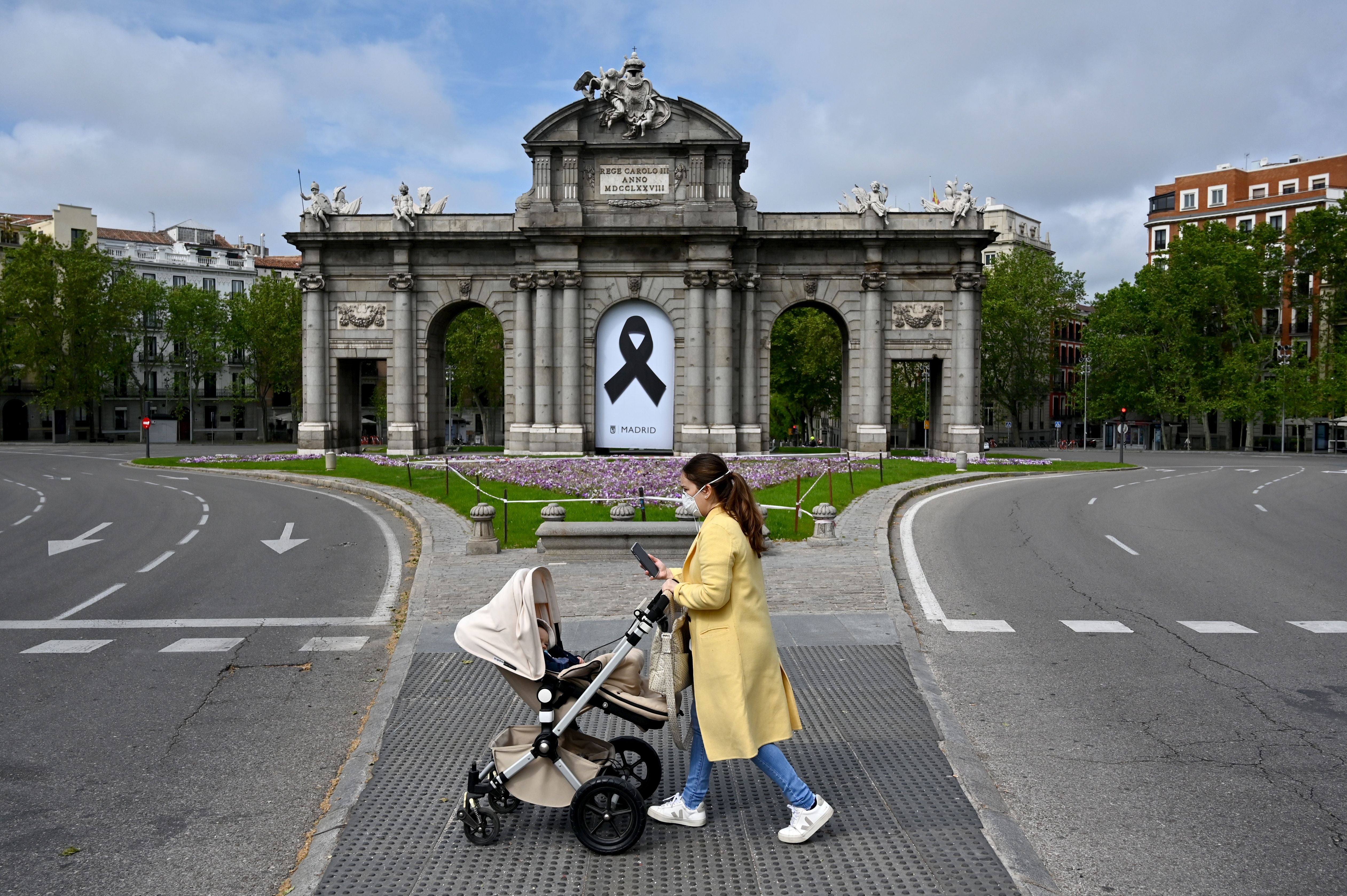Women’s rights ‘rolled back’ in EU by Covid crisis
‘There is already ample evidence that the hard-won achievements of past years have been ‘rolled back’... progress on women’s rights is hard won but easily lost’

Your support helps us to tell the story
From reproductive rights to climate change to Big Tech, The Independent is on the ground when the story is developing. Whether it's investigating the financials of Elon Musk's pro-Trump PAC or producing our latest documentary, 'The A Word', which shines a light on the American women fighting for reproductive rights, we know how important it is to parse out the facts from the messaging.
At such a critical moment in US history, we need reporters on the ground. Your donation allows us to keep sending journalists to speak to both sides of the story.
The Independent is trusted by Americans across the entire political spectrum. And unlike many other quality news outlets, we choose not to lock Americans out of our reporting and analysis with paywalls. We believe quality journalism should be available to everyone, paid for by those who can afford it.
Your support makes all the difference.Women living in the European Union have been affected “disproportionately” by the Covid-19 pandemic since they make up the majority of workers in frontline jobs, an EU report said on Friday.
According to the EU’s annual gender equality report, the pandemic has negatively affected a range of issues for women. These include pay, employment and health.
The report read: “The Covid-19 pandemic has disproportionately affected women’s lives.”
It added: “There is already ample evidence that the hard-won achievements of past years have been ‘rolled back’... progress on women’s rights is hard won but easily lost.”
As well as this, there has reportedly been an increase in domestic violence against women.
This was particularly apparent during Europe’s first lockdown in spring 2020, with domestic violence rates rising in France, Ireland, Spain and Lithuania.
According to Reuters, who saw the report in advance of its release, health risks have also increased for women due to changes to their workload and work-life balance brought on by the pandemic. This is attributed to the fact that women had to take on more care responsibilities during the Covid crisis.
The report noted that generally more women than men have jobs which require personal contact. It went on to highlight how women were overrepresented in “lower paid sectors and occupations, such as hospitality, retail, or personal services.”
The report added that being in these jobs has made women “particularly vulnerable in the labour markets struck by the Covid-19 crisis,” going on to illustrate how female employment in the EU dropped somewhat more than male employment did when the pandemic began.
Women have also had more trouble finding subsequent new jobs than men have.
The report found that men have not had such difficulties, due to the sectors in which they typically work. In fact, in some instances, these sectors saw an increase in rates of employment.
It said: “Service sectors that were not as disrupted due to the nature of their activity such as information and communication, finance and insurance, primarily employing men, saw an increase in employment rate.”
The EU’s report set out warnings that these trends could lead to inequalities “for decades to come” with concerns that women could end up with lower pensions than men as a result.
Another report, published earlier in the week by company PwC, suggested that the pandemic could push gender equality in the workplace back to 2017 levels.
The PwC report also underlined how in both the UK and the US, unemployment rates increased more for women than for men.
Referring to the UK it said: “Between July and October 2020, a total of 15.3 million jobs were furloughed in the UK. Out of those for which gender was known, 52 per cent were women’s jobs, despite women only making up 48 per cent of the workforce.”
Meanwhile, in the EU, the European Commission President Ursula von der Leyen, announced on Thursday that the Commission wants to eliminate disparity in wages between men and women. They intend to do this by imposing specific rules which would make pay levels public.
Ursula von der Leyen said: “For equal pay, you need transparency. Women must know whether their employers treat them fairly.”
This comes ahead of International Women’s Day on 8 March 2021.



Join our commenting forum
Join thought-provoking conversations, follow other Independent readers and see their replies
Comments